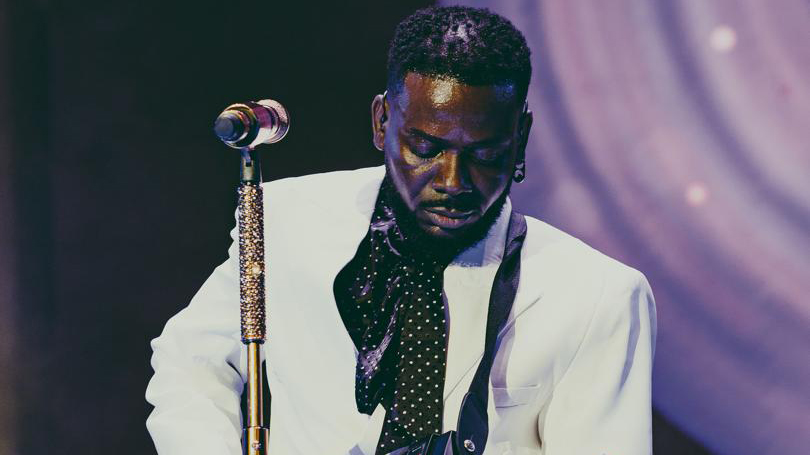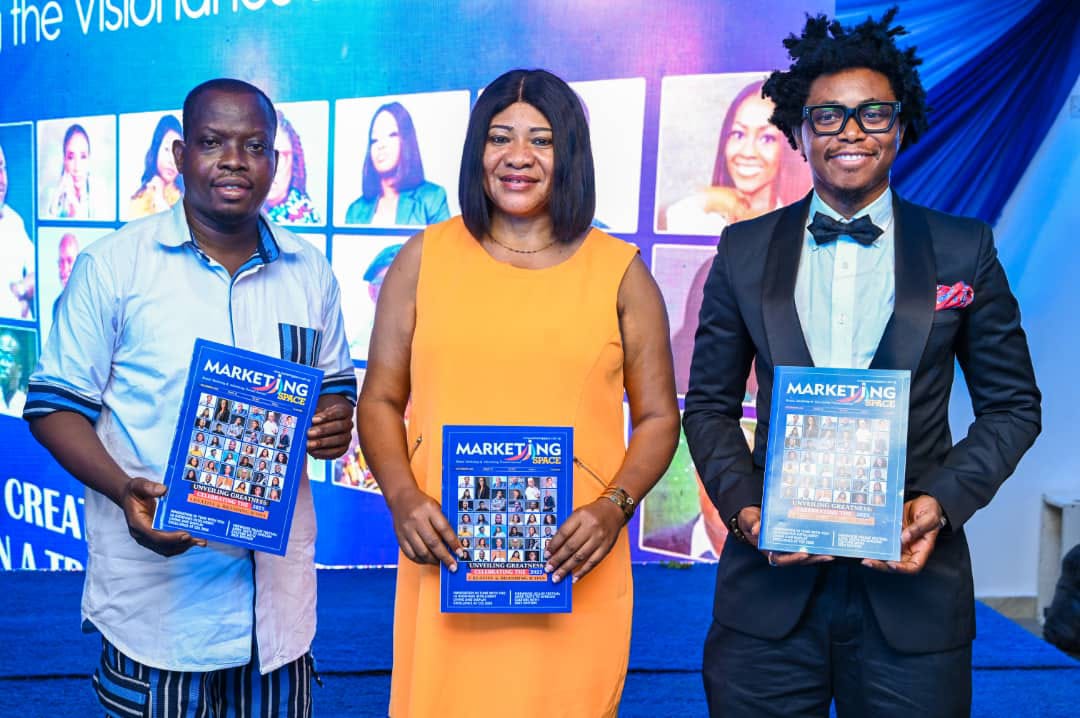• As LASUSTECH Hosts memorial roundtable in his honour
Former Managing Director/ Editor-in-Chief of The Guardian, Emeka Izeze, has reminded journalists of their constitutional role of holding public officers accountable.
Speaking at the 2025 Lateef Jakande yearly memorial lecture organised by the Nigerian Guild of Editors (NGE) in Lagos recently, he noted journalists should act as representatives of the public and must interpret policies for the public to understand.
To him, “nobody elected us, but we are representatives of the public. Journalists should put questions that the public will never have opportunity to ask. We must report objectively, sometimes, decisively by articulating the positions that are in our view, in the interest of the public or national interest. We must ask questions and insist on answers. We act not as appendage to government. We can never do our job well if we see ourselves as appendages. Government must recognise that they cannot function without journalists. When it cannot serve that purpose, it fails the government and above all, it fails the public. It loses its reason for existing. Worst still, it puts our delicately balanced ethnic society under strain, and at worst, under jeopardy.
“When that happens, journalism no longer becomes a solution, as the original founding fathers intended it to be. We effectively become part of the problem of the country.”
Speaking further, he observed journalists have given a pass too often to those in authority.
To him, “we have become too respectful, fearful and dangerously too close. There are editors I know that have been invited to join government since 1999 and they rejected it. I don’t do government, I am a journalist. We are not able to serve the society as we ought to do. We are too accommodating of actors, whose pedigree we can question. Journalists conveniently look the other way when things are going wrong in our country. It shouldn’t continue. Our job is to help those who govern do a better job and you don’t do that by telling only what is acceptable. Imagine we have three governors invited here. None of them showed up. We don’t accept that. Eze, the NGE president, must insist on that. If you can’t come, tell us you are not coming. I was secretary of NGE and when we invited them, they came.”
Themed, ‘Journalism and the challenges of nation building in multi-ethnic society,’ he added journalism could capture the nation’s diversity. He further recalled, “I grew up in Bendel State. In an attempt to manage our multi ethnic society, Radio Bendel casts news in 17 indigenous languages everyday. It’s been done before and it worked.”
Saying journalism is evolving in the current age because of technology, he noted expectations are no longer to inform, entertain and educate, but ‘we now operate in an age that demands more. The only people who don’t seem to understand that are the journalists themselves. The roles of journalists have become less simplistic and more sophisticated. We have new roles.”
The keynote speaker and Bauchi State governor, Bala Muhammed, who was represented by the Chief of Staff Aminu Hassan Gamawa, said: “Editorial independence is under siege. Journalists must not only write truths, they must live it. We must invest in media literacy and civic education. The journalist must demand credible leaders. They must champion national reconciliation. They must promote civic education and inter religious conversation. The media must put its house in order. Our survival as a nation is not optional. It is imperative. Our size gives us leverage.”
Malagi, observed that owing to smart devices, many people send fake news. To him, “we must follow the rules that govern our profession. If we don’t fight fake news, it can set our country on fire.’’
Akwa Ibom State Governor, Umo Bassey Eno, who was represented by Michael Effiong, noted, “the theme of this year’s lecture is deeply significant, especially at a time when the nation must reaffirm its unity, embrace diversity, and foster people – oriented governance. The late Alhaji Lateef Jakande, in whose honour this gathering is convened, embodied these ideals. His legacy as a visionary journalist and people-focused administrator continues to challenge us all to prioritise service, truth, and equity in our national life. We strongly believe that genuine nation building must begin with impactful governance at the subnational level, touching lives, building trust, and creating opportunities that unify rather than divide.
The media, particularly editors under the Guild, are critical stakeholders in this process. You not only shape public discourse but help to define the direction of national progress.’
Chairman of the event, Prof. Lai Olurode, recalled when Alhaji Jakande was Governor of Lagos State he never asked anybody where they were from, “all he was doing was to dish public good to the society regardless of your religion, regardless of your ethnicity.”
To Jakande, no matter where you come from, as long as you are a Nigerian, you deserve to be served and Jakande did that excellently, very well,” he said.
NGE President Eze Anaba suggested, “we must foster trust and promote mutual understanding. We must wield this power with a sense of responsibility and integrity.”
Former Special Adviser, Media and Publicity to President Muhammed Buhari, Femi Adesina, insisted the media must be strengthened. To him, if your house is in disorder, you cannot champion ethics.
Former Managing Director of The Guardian, Lade Bonuola recalled he met Jakande in 1971. He described him as a great man. He said he was the first black man to head International Press Institute (IPI).
A former Deputy Governor of Lagos State, Sinatu Ojikutu, said Lagos State University (LASU) should be named after Jakande.
Responding on behalf of the family, one of Jakande’s children Deji Jakande acknowledged NGE members for organising the event. He said it appeared as if his father was still alive.
In the same vein, the Department of Mass Communication, Lagos State University of Science and Technology (LASUSTECH), in conjunction with the DSE Foundation, also hosted a roundtable in his honour.
The event, themed, ‘Journalism in Digital Age: Lessons from Jakande’s legacy’, held at the Ikorodu Campus, LASUSTECH, on Wednesday, July 23, 2025.
The roundtable not only celebrated Jakande’s contribution to journalism, it also engendered important conversations around contemporary journalism and the lessons that could be learnt from the media icon and first civilian governor of Lagos State.
The event attracted Provost of Nigerian Institute of Journalism (NIJ) and former Editor-in-Chief of Vanguard Newspapers, Mr. Gbenga Adefaye; Publisher of Oriwu Sun Newspaper, Mr. Monzor Dawodu Olowosago; Executive Director, Media Career Development Network, Mr. Lekan Otufodunrin. General Manager LTV8, Mrs. Adesola Kosoko and Founder and Director, the Journalism Clinic, Mr. Taiwo Obe.
The keynoter, Adefaye, in his speech, said it was a privilege to pay tribute to the late journalist cum politician. He stated that the programme was organised to honour Lateef Jakande’s legacy and bring about discussions that would inspire current and prospective journalists to uphold ethical standards.
Adefaye stressed that digital journalism come with its challenges, saying if not properly practiced, could be used as tool to propagate misinformation and conspiracy theories.
He advised that journalism must preserve its core principles in spite of the advancement in technology. “Journalism must retain its timeless values of truth, accountability and service,” he said.
A representative of High Chief Tunde Fanimokun, DSE Foundation—Mr. Amos Oladele– also gave a short tribute speech about Lateef Jakande. He also implored modern journalists to try to emulate values LKJ upheld.
He had this to say about Lateef Jakande: “He wielded the pen not for profit, but for purpose. In an era without the convenience of the Internet or mobile phone, Alhaji Jakande broke stories that challenged power, gave voice to the voiceless, and held society accountable. He did so with a blend of excellence, ethics, and empathy. Values we all must never lose in today’s digital newsroom or journalism practice.”
During the panel session, the media veterans gave instructive comments on the topic of the day.
Obe called for the incorporation of a course module where the history of Nigerian journalism could be taught. He further stated how we cannot continue to read about those who contributed to American journalism, emphasising that we should be quoting the likes of Jakande and Ernest Ikoli.
While saying that the legacy of LKJ cannot be erased, Kosoko advised young journalists not to deviate from the precedent that has been set. She said: “The policies and the foundation have been established. But I want to implore all the young generation of journalists to please build on it. Don’t move away from it. Don’t deviate.”






